Over the past two years, much has been discussed about Artificial Intelligence (AI) and large language models (LLM) and their impact on information retrieval. AI has many benefits and will significantly impact our lives in the foreseeable future. What is also of concern is AI’s impact on businesses’ Google search and search engine optimisation (SEO) practices.
In this article, I’d like to share my thoughts on how AI will impact search engine information retrieval and SEO based on what I’ve experienced with Google Gemini. Of course, the situation will be constantly changing.
Despite Chat GPT being commercially available since the start of 2023 and integrated into Bing CoPilot (previously Bing Chat) since August 2023, Google’s monthly users have remained relatively steady at over 80 billion monthly. Google’s market share has also remained consistent, although it has dropped slightly:
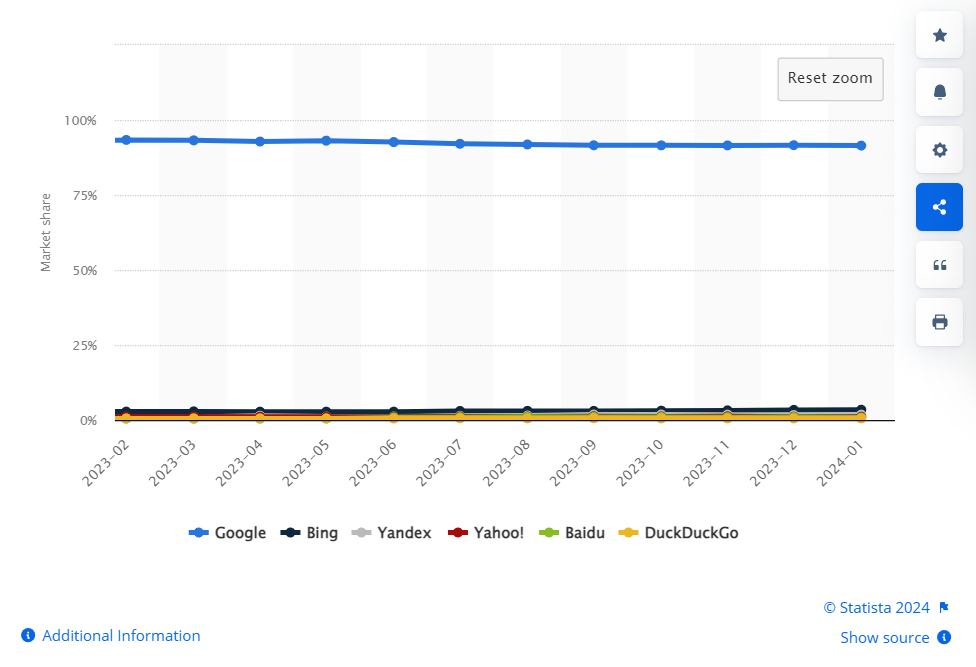
Find more statistics at Statista
Google has been progressively testing Gemini (aka SGE, formerly known as BARD). In February 2024, Google also announced Gemini Advanced, available via their Google One AI Premium Plan ($32.99/month).
Local SEO
When running a typical local search using the “near me” qualifier, the same search results currently appear, with the option to generate an AI overview (which is how Google should integrate its AI within search results, in my opinion).
Current Google local search:
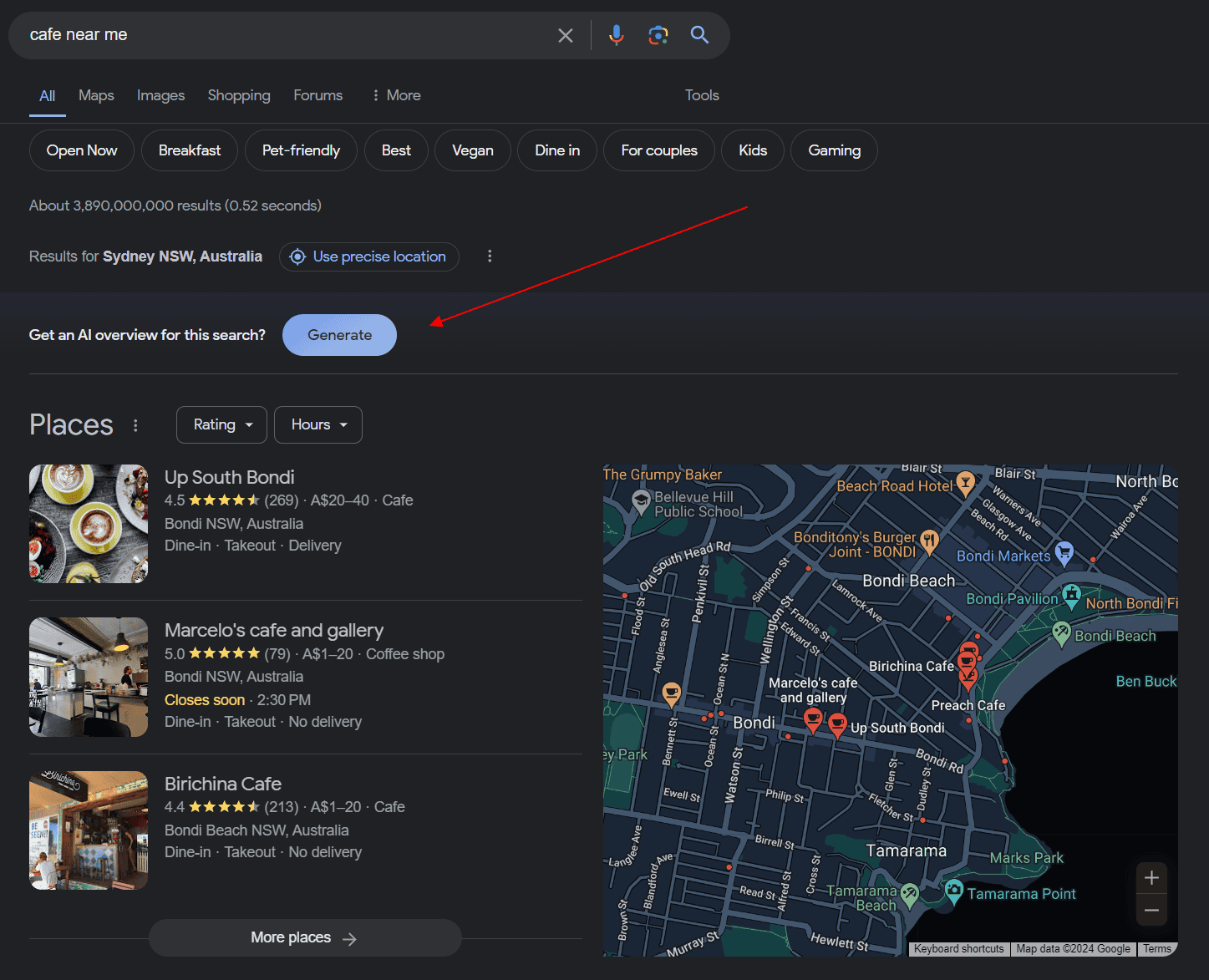
After the AI overview is clicked, we see the following information:
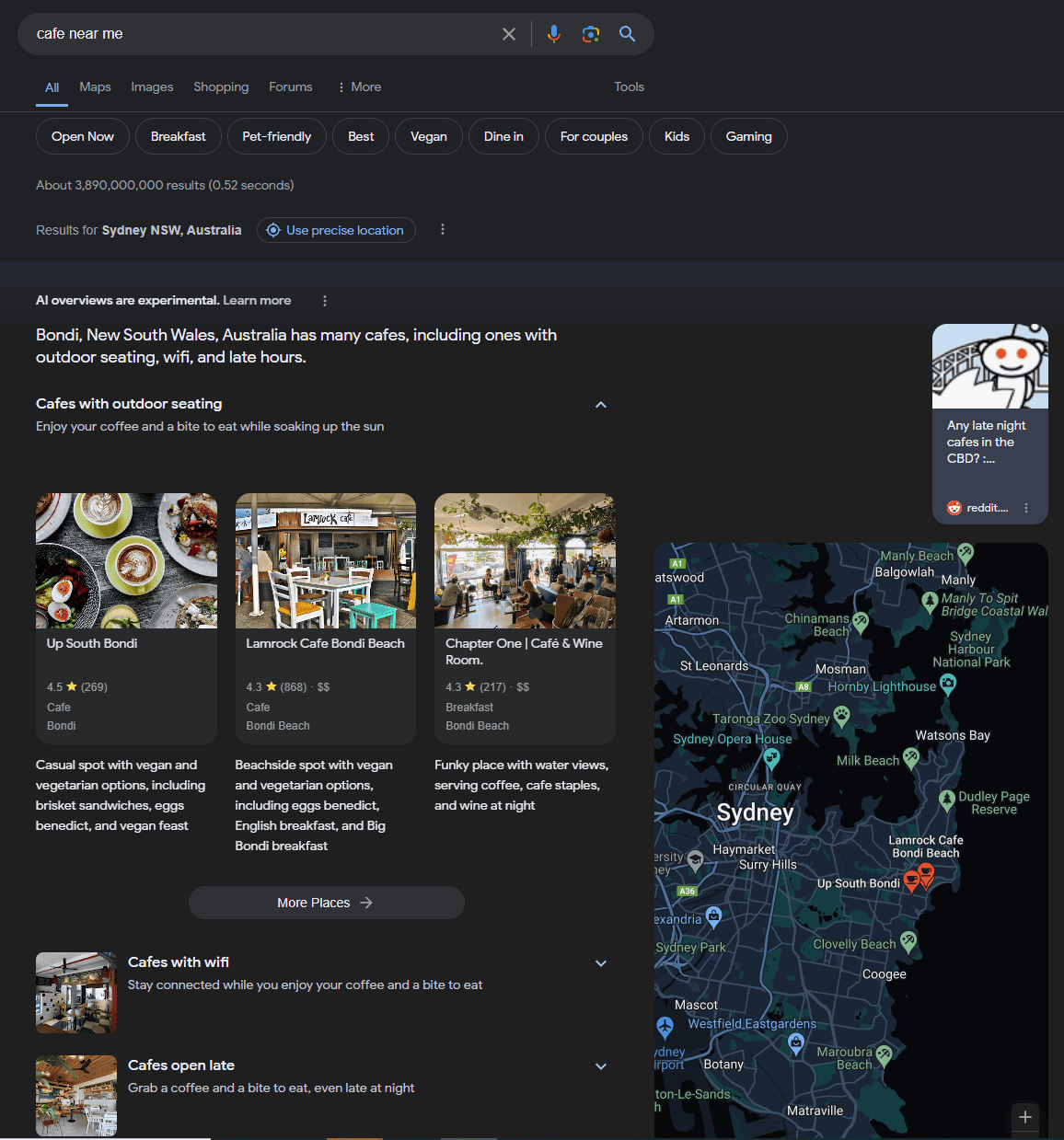
Findings:
Although, at first glance, there’s no significant difference in the AI search results. When digging deeper, however, establishments are better categorised; in this case, it is categorised by cafes offering:
- Outdoor seating
- WiFi
- Late opening hours, etc
We can classify these establishments even further, and outdoor seating can be broken down into rooftop seating, garden seating, views of the ocean, etc.
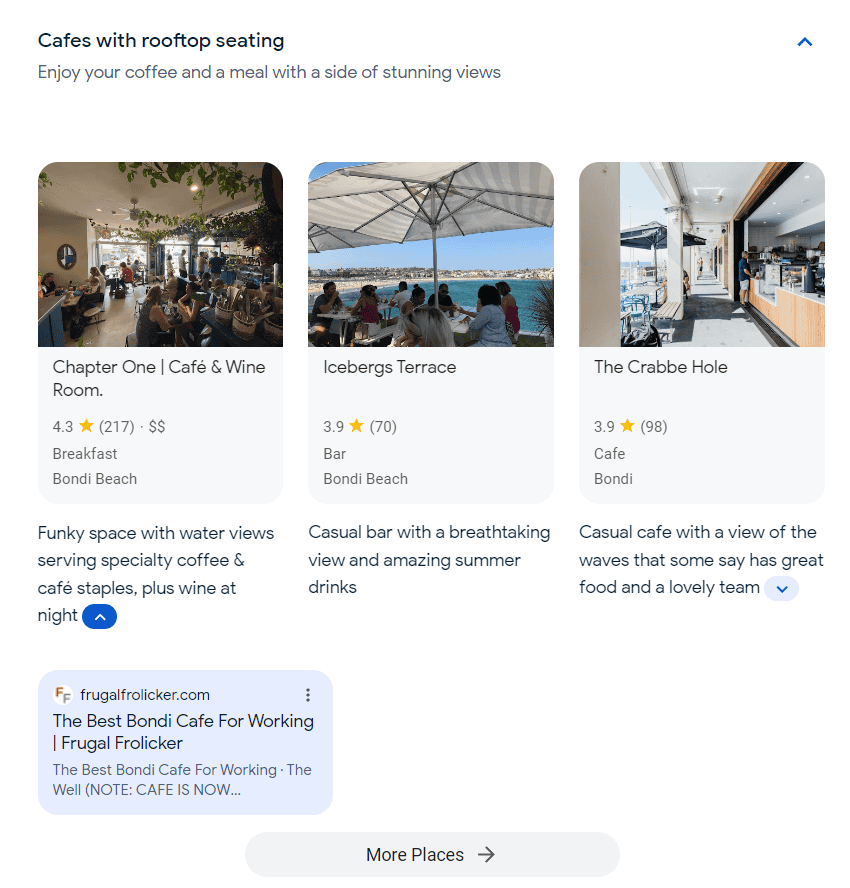
Local Search AI Impact: Medium
There’s nothing mind-blowing in AI for local search, with similar results for searchers before & after the AI overview is clicked. The big difference here is that, at least at this point, results are not ordered by the average review rating for the business with AI but rather via their alignment to the category. It appears Gemini is simply aggregating review information and backlinks/references from other websites and using AI to provide categorised information to help searchers find more accurately what they are looking for.
Advice:
These developments highlight the importance of gaining reviews for your business. Customers should be encouraged to leave detailed reviews about their experience, increasing the chances of your business being listed. Also, accurately filling out all components of your Google Business Profile is imperative to ensure your business is found for the various subcategories for local search businesses. Citations and backlinks are also important, and these appear to be used as part of the algorithm as supporting information to determine which results are listed.
eCommerce SEO
Current Google eCommerce / shopping search:
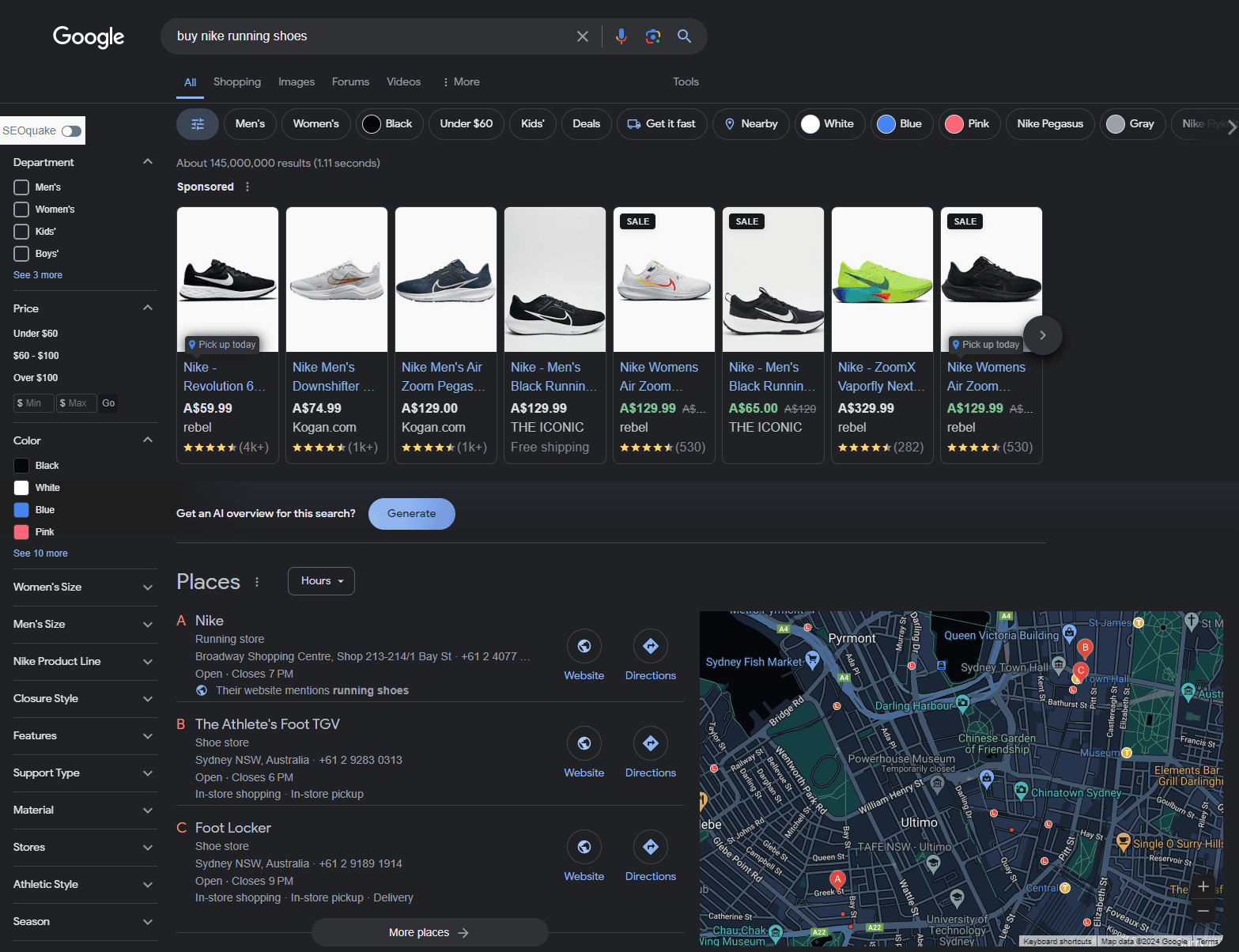
After the AI overview is clicked:
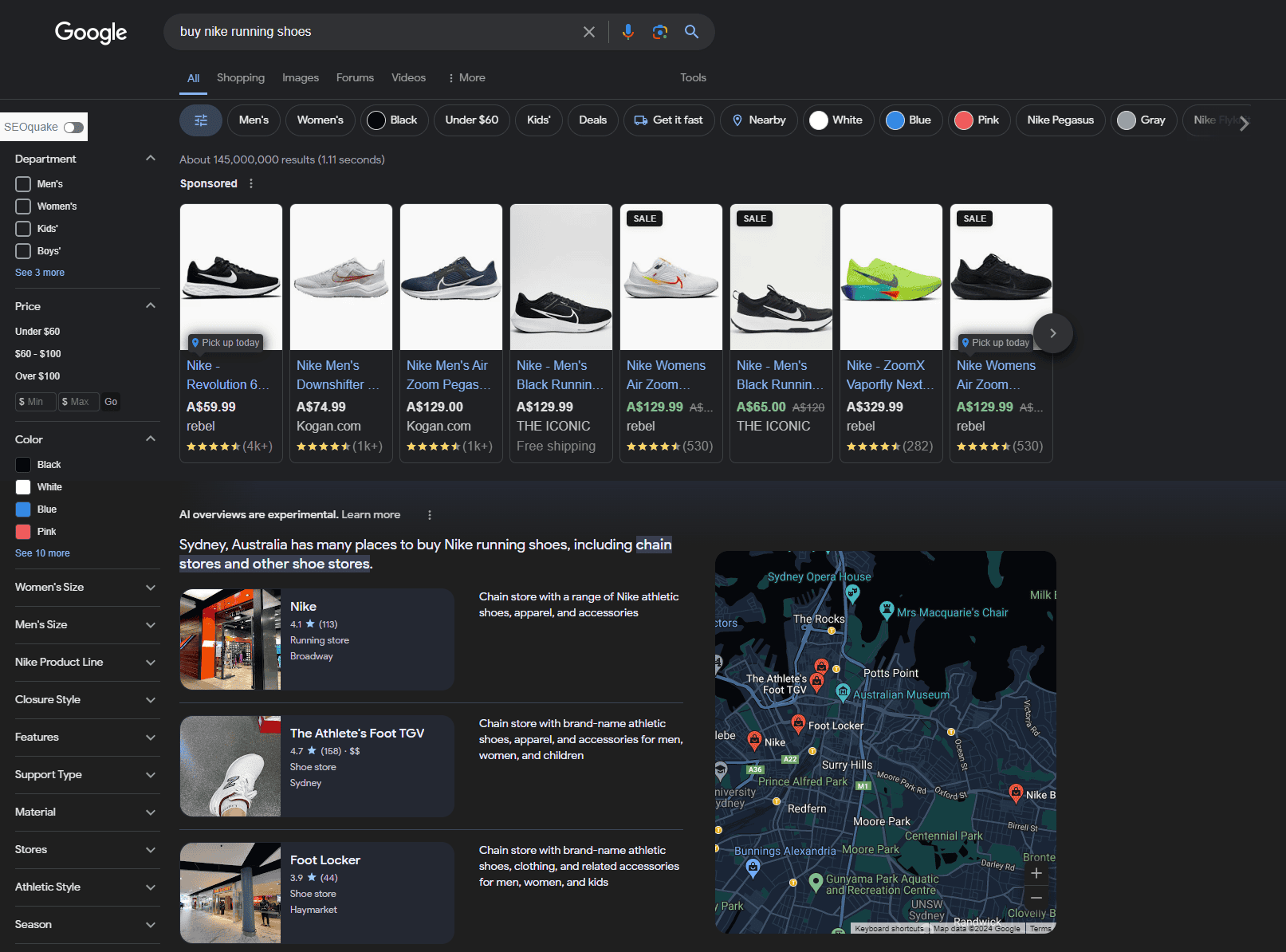
Findings:
Similar to the situation with local search, Google is using AI to categorise its shopping and eCommerce search results better. Compared to AI integration in local search, AI appears to add marginal value. However, this is to be expected with bottom-of-the-funnel searches.
eCommerce AI Impact: Low
Advice:
Ensure eCommerce product information, including categories and product descriptions, is accurate, complete and marked up with structured data where relevant. As with local search, backlinks are still important for eCommerce sites.
National/International/B2B SEO
Current Google search result:
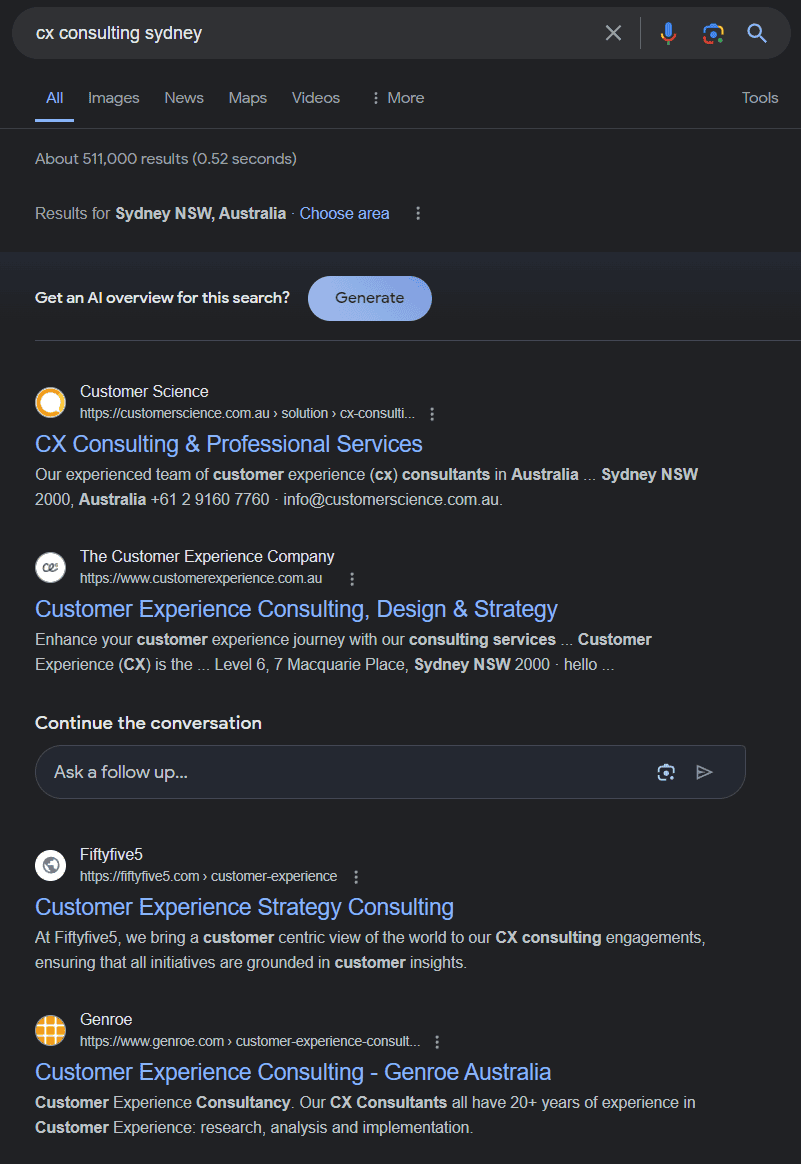
Search result after AI overview:
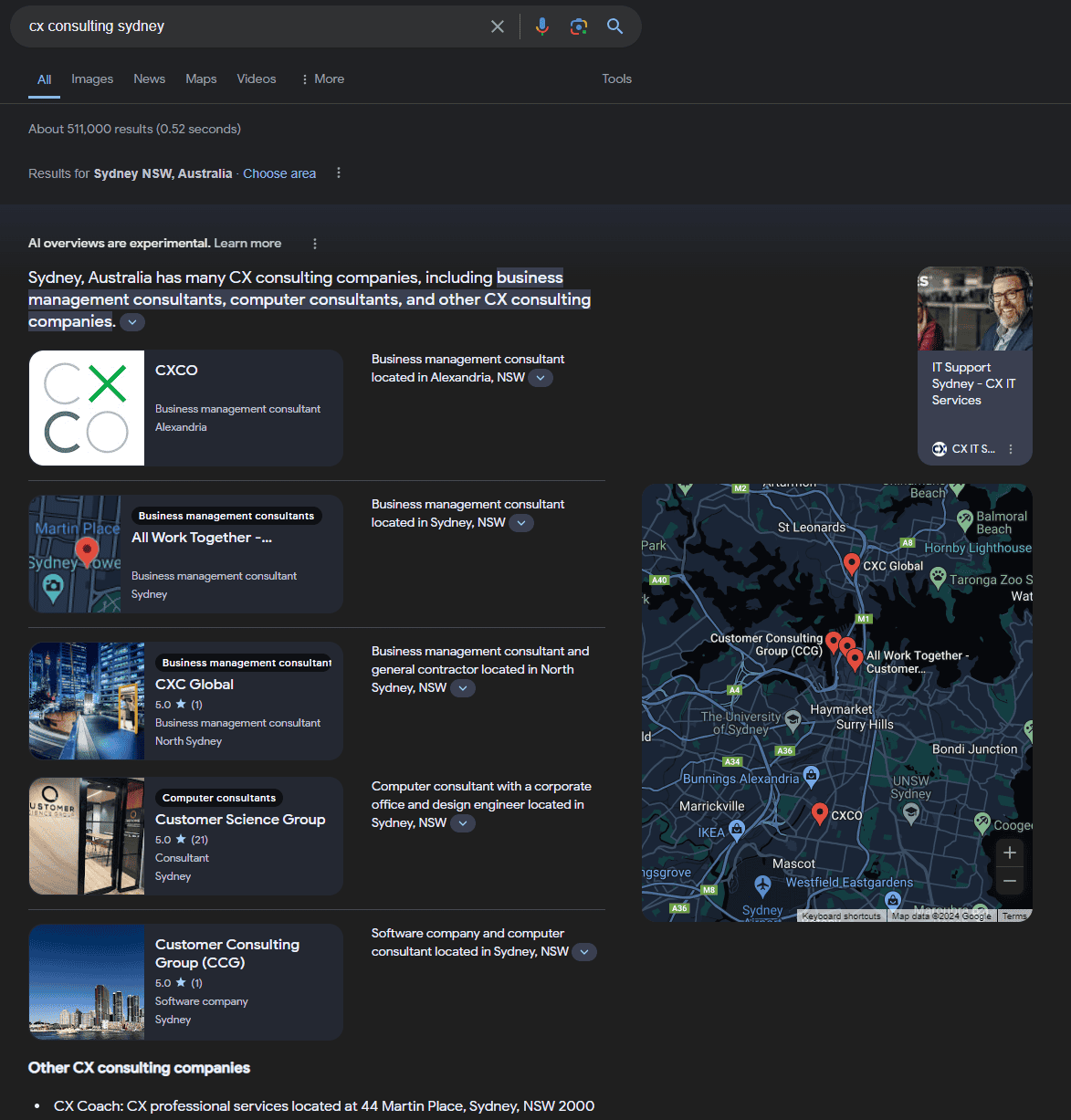
Findings:
B2B, National, & International businesses must also be aware of the impacts of Google’s AI-generated overviews. It’s interesting to see the increasing use of Google Maps/Local SEO as part of the AI overview for commercial businesses. As per the previous examples, AI aggregates information from various categories that Google deems related to the search category. In this example, CX consulting Sydney, AI aggregates searches to include those categories of business management consultants and managed IT services, which are quite different from CX services but often found as complementary services offered by CX Consultants.
As Google is building its AI LLM, it’s anticipated that Google’s AI overview will summarise a large percentage of informational searches. Google has essentially gobbled up many of the search results by summarising several sources of information. Thankfully, in the newer iterations of Gemini, Google provides links to this information’s sources. However, I expect a significant decline in website traffic, as in many of these searches, there is no need to click on the source of information to learn more about the topic.
This shouldn’t have a significant impact on commercial and transactional searches, however, which are at the bottom of the funnel and high-converting searches.
National/International/B2B SEO AI search Impact: Medium
Advice:
As per previous advice, reviews, completeness, and accuracy of Google Business Profiles remain important. Adding Frequently Asked Questions/blogs should be a priority to ensure topics are covered in detail, as well as semantically related & tangential topics. Continued backlink acquisition will also be required.
Conclusion:
Although Google Gemini is not live yet, I believe it’s only a matter of time before the button is pushed and Gemini AI is released worldwide. Site owners can expect a loss in traffic as a result, but that will predominantly come from the top-of-the-funnel informational searches. I don’t expect a significant drop in conversions as a result. To mitigate the effects of AI, site owners should ensure their Google Business Profile is accurate, complete and up to date, as there appears to be a greater focus on local search/maps with Gemini. Ensuring broad content including FAQs are present, and high-quality backlinks are also important.